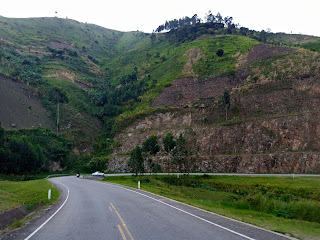GENDER EQUALITY TODAY FOR A SUSTAINABLE TOMORROW
Gender Equality is a state in which women and men enjoy equal rights, opportunities and entitlements in civil and political life. It implies equal participation of women and men in decision making, equal ability to exercise their human rights, equal access to and control over resources,the benefits of development, and equal opportunities in employment and in all other aspects of their livelihoods (FAO, 2009)
‘’Humanity has the ability to make development sustainable to ensure that it meets the needs of the present without compromising the ability of the future generations to meet their own needs,’’- (WCED,1988) Our Common Future, p.16.
Social, Economic and environmental sustainability, which are the pillars of sustainability, and interdependent on each other are impossible without the empowerment, support and contribution of women.
The changes in weather over time due to natural and human activities, is a major threat to our environmental sustainability and one of the biggest challenges of the 21st century.
The impact of climate change is not the same on men and women, women are seen as more vulnerable than men to the impacts of Climate Change, because they represent the majority of the world’s poor and are proportionally more dependent on the threatened natural resources- (ILO,2008) Report of the Committee on Employment and Social Policy, Employment and labour market implications of Climate Change.
According to the UN, 70% of the 1.3 billion people living in conditions of poverty are women. In Urban areas 40% of the poorest households are headed by women. Women predominate the world’s food production (50%-80%), but they own less than 10% of the land.
They have limited access to and control of environmental goods and services, negligible participation in decision making and as such less able to confront the effects of climate change like food and water shortages.
Back in the village of Adekwokwok , crop failure due to sporadic rainfall mostly affects the women whose livelihoods, and that of their families, rely heavily of the success of the crop harvests.
But such hardworking women usually have limited, to no access to climate smart agricultural practices and few economic resources to fall back to, and are at the mercy of the changing weather patterns to provide for their families.
Emerging research indicates that that climate change has significant gendered impacts, yet policies and practices for mitigation and adaptation strategies have failed to incorporate gender mainstreaming- (Alston, M. 2013)
There is urgent need to close the big gap between men and women in relation to having access to information, land, technologies in agriculture, credit, education and other opportunities in order to secure a brighter future for the next generations.
‘’Recognizing the important contributions of women as decision makers, stakeholders, educators, carers and experts across sectors and at all levels can lead to successful, long term solutions to climate change.’’-International Union for Conservation of Nature.



Comments
Post a Comment